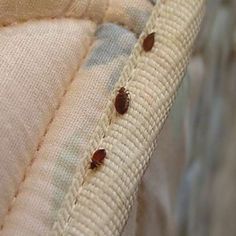Amazing Bed Bug Exterminator Treatment in Houston: Expert Take Care Of Your Home
Amazing Bed Bug Exterminator Treatment in Houston: Expert Take Care Of Your Home
Blog Article
Efficient Bug Control Actions to Protect Your Garden and Plants
In the realm of horticulture, the consistency of a well-tended yard can frequently be interfered with by undesirable parasites that intimidate the wellness and vitality of plants. As garden enthusiasts strive to preserve a flourishing exterior area, the obstacle of bug control emerges as a critical facet of their horticultural undertakings. Implementing reliable insect control determines not only safeguards the yard's aesthetic appeal yet also plays a pivotal role in protecting the plants' well-being. By discovering a series of techniques that include natural repellents, valuable bugs, companion growing, DIY services, and environmentally-friendly pesticides, gardeners can browse the intricate world of parasite monitoring with accuracy and treatment.
Natural Bug Repellents

An additional reliable natural pest repellent is diatomaceous earth, a powdery compound made from fossilized water organisms. Diatomaceous earth jobs by physically hurting bugs with its unpleasant appearance, making it a superb option for regulating parasites like slugs, beetles, and caterpillars. In addition, planting buddy plants like marigolds, lavender, or basil can help ward off insects as a result of their solid scents or all-natural chemical substances.
Beneficial Insects for Bug Control

Another beneficial pest is the parasitic wasp, which lays its eggs inside bug insects, at some point eliminating them. Ground beetles are outstanding for managing caterpillars, snails, and slugs. Hoverflies, often incorrect for as a result of their similar look, feed on aphids, thrips, and caterpillars.
To bring in advantageous insects to your garden, you can grow a varied array of flowering plants, such as dill, fennel, and yarrow, which provide nectar and plant pollen for grown-up insects. Additionally, prevent using broad-spectrum pesticides that can harm both damaging and useful pests. By creating an inviting setting for these advantageous insects, you can minimize the need for chemical pesticides and promote a healthier, much more balanced garden ecological community.
Companion Growing Approaches
When intending to improve the effectiveness of beneficial insects in your garden for all-natural pest control, taking into consideration companion planting approaches can even more enhance the environment equilibrium. Companion planting includes strategically placing certain plants alongside each other to optimize their common advantages, such as hindering pests, bring in helpful insects, or enhancing nutrition uptake - bed bug exterminator houston near me. One popular instance is growing marigolds alongside tomatoes to ward off nematodes and various other harmful bugs while likewise bring in pollinators
Furthermore, including aromatic natural herbs like basil, mint, or rosemary in between vegetable rows can assist prevent insects with their solid aromas. Another effective strategy is growing flowers such as sunflowers, zinnias, or cosmos to bring in pollinators like and butterflies, which subsequently can help in pollinating your fruit and vegetable crops. Planting trap plants like nasturtiums can divert parasites away from your major plants, serving as sacrificial plants that shield your useful fruit and vegetables. By carrying out companion growing techniques, you can develop a diverse and unified garden ecosystem that normally controls bugs while promoting plant health and wellness and efficiency.
DIY Parasite Control Solutions
To successfully take care of parasites in your garden, implementing diy insect control remedies can be an affordable and environmentally friendly approach - bed bug exterminator houston near me. Establishing up physical obstacles like row covers or netting can additionally avoid bugs like caterpillars from harming your plants.
An additional effective approach is making use of diatomaceous planet, an all-natural powder that can be sprayed around plants to prevent slugs, snails, and various other crawling insects. Companion growing particular natural herbs and flowers like marigolds, websites basil, and lavender can help repel parasites and bring in helpful bugs. Consistently evaluating your plants for indications of insect damage and without delay getting rid of any type of affected locations can likewise avoid infestations from dispersing. By integrating these DIY parasite control remedies into your gardening routine, you can shield your yard and plants without relying upon severe chemicals.
Environmentally-Friendly Pesticides

An additional efficient alternative is diatomaceous earth, a natural material made from fossilized water microorganisms, which can be sprayed around plants to control slugs, snails, and various other creeping bugs. Furthermore, insecticidal soaps and oils originated from plant-based resources work for regulating soft-bodied pests like aphids, mites, and whiteflies.
Conclusion
Finally, efficient insect control procedures such as all-natural repellents, valuable pests, friend growing techniques, go DIY options, and environmentally-friendly chemicals are crucial for securing your garden and plants. By executing these methods, you can stop damages caused by parasites and keep a healthy and successful yard community. It is essential to take into consideration the long-lasting link impact of making use of pesticides and select more lasting and environment-friendly alternatives to guarantee the health and health of your plants and the setting.
Report this page